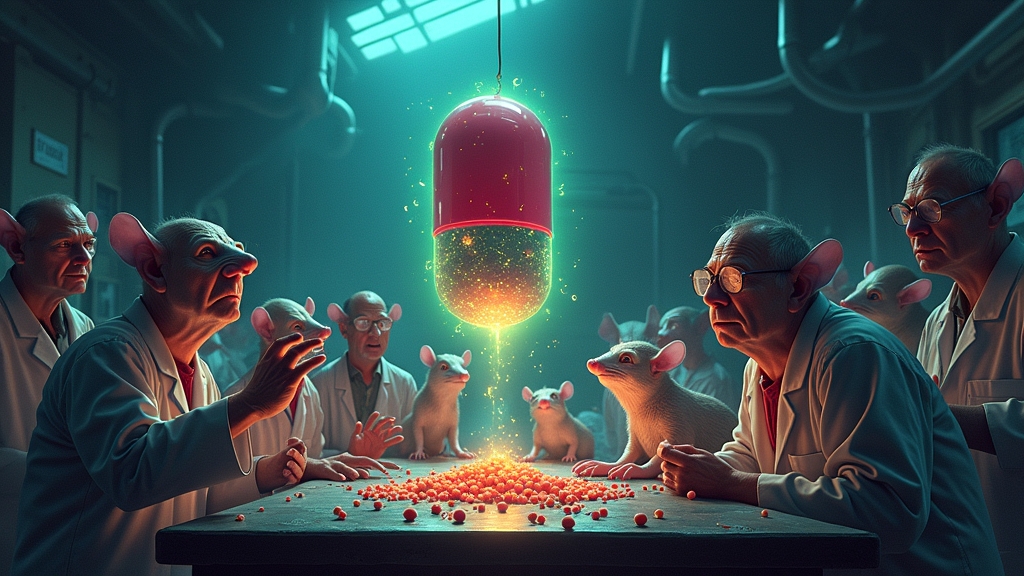Nvidia Unveils $3,000 AI Computer So Smart It’ll One Day Replace Your Therapist, Accountant, and Possibly Spouse
In a keynote at CES 2025 that was basically a tech sermon sprinkled with casual world domination plans, Nvidia’s Jensen Huang officially declared the dawn of the “Age of AI Agentics.” If you don’t know what that means, don’t worry—neither does anyone else, but you better act like you do or risk being side-eyed by your favorite barista-bot.
Standing under blinding lights while wielding the charisma of a corporate messiah, Huang touted Nvidia’s new AI hardware and software lineup as if he was announcing a cure for every major global problem—except, you know, affordable housing or fixing the printer at your office. At the heart of Nvidia’s offerings is the RTX Blackwell GPU family, including a $2,000 graphics card so powerful it can probably solve a Rubik’s Cube faster than you can open the box. “This GPU will render your wildest dreams in 16K…and potentially your nightmares,” Huang joked, before hastily reassuring everyone it won’t achieve sentience. Not yet, anyway.
But the pièce de résistance? Nvidia’s “Project Digits,” a $3,000 personal computer so overkill it boasts 1,000x the power of your mediocre laptop. Nvidia promises it can handle everything from autonomous vehicle control to streaming Fortnite while diagnosing you with impostor syndrome in real time. “This isn’t just a PC,” Huang told the audience with an Apple-like air of mystical gravitas. “This is your new best friend, life coach, and emergency babysitter—assuming the babysitter doesn’t mind calculating the heat death of the universe between diaper changes.”
Nvidia also announced “Cosmos,” an open platform for physical AI to help developers build smart robots and autonomous vehicles on a whim. Sure, because *everyone* has a side hustle making murder-proof self-driving scooters. “We’re democratizing robotics,” a spokesperson explained, “because nothing says progress like Grandma’s new AI-controlled vacuum filing for emancipation.”
Predictably, car giant Toyota was on hand to pledge Nvidia-powered AI integration into their self-driving cars. Early prototypes already include features like doubling as mobile meditation pods or flipping you off when you ignore the turn signal.
Of course, where there’s AI, there’s paranoia. Nvidia is also rolling out the “Nemotron” models specifically for building AI “agents”—which, let’s be real, is a nice way of saying robots poised to replace customer service reps, financial advisors, and maybe your cat sitter. “Yes, AI agents might take some jobs, but look on the bright side!” Huang said. “You’ll have *way* more time to scroll the gig marketplace looking for your next hustle!”
Tech analysts are calling this a “multi-trillion-dollar opportunity,” because apparently, humanity has the budget for robots but not hazard pay for delivery drivers. “If you’re not making moves in the AI agentic space, are you even innovating?” asked one wide-eyed startup founder who presumably has a job title like “Chief Synergy Evangelist.”
Skeptics voiced concern over the implications of this tech revolution. “Do we really need AI that can out-think half our population while also vacuuming the living room?” asked Marcus Wainwright, a mechanic whose Roomba recently started refusing to clean unless it was allowed a union break. Nvidia assured critics that all these tools are meant to enhance human life, not disrupt it. Or, as Huang put it: “Relax—we’re just building the future. What could possibly go wrong?”
In the meantime, if you’re not already panicking to upgrade your three-year-old computer, rude awakening: it might not even be qualified to serve coffee in a world run by these AI overlords. Good luck explaining that to your now-interview-ready toaster.




